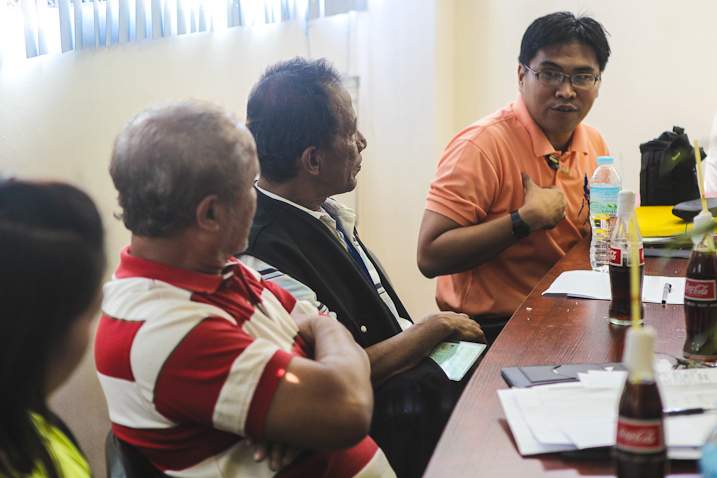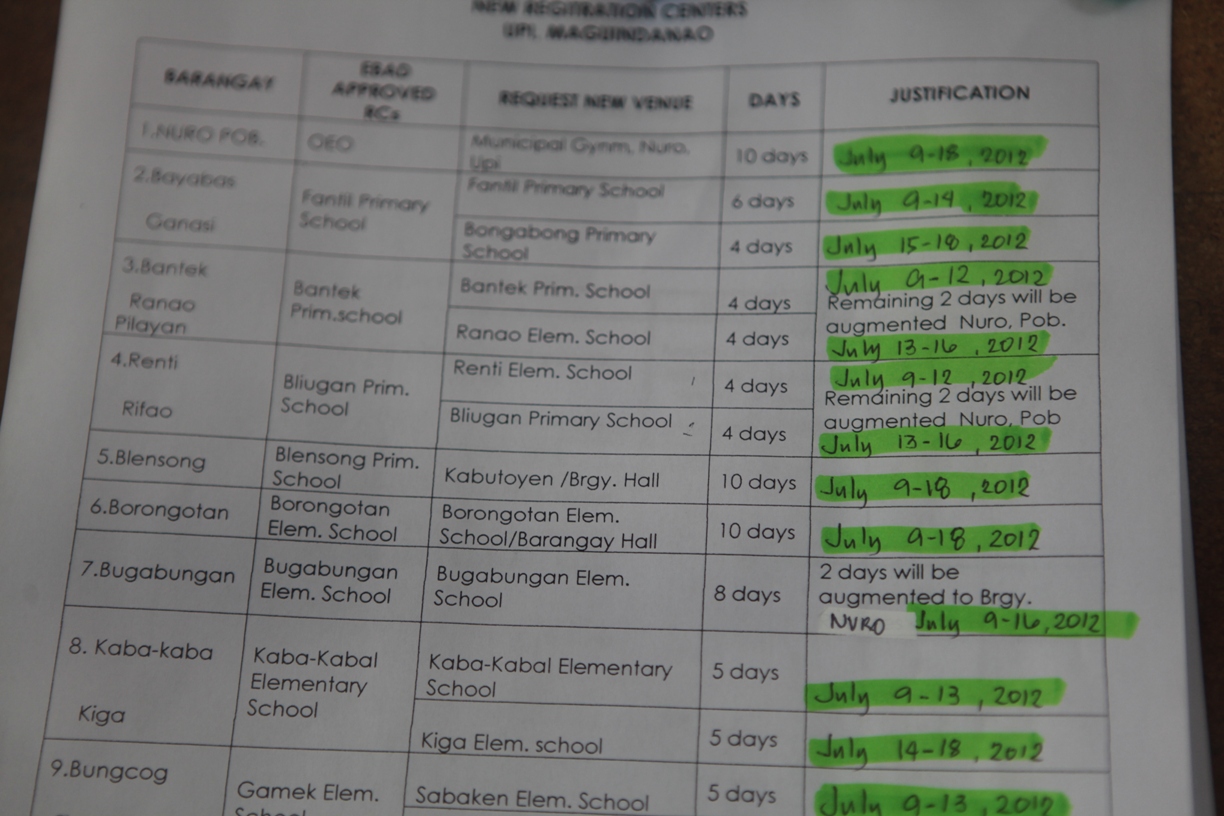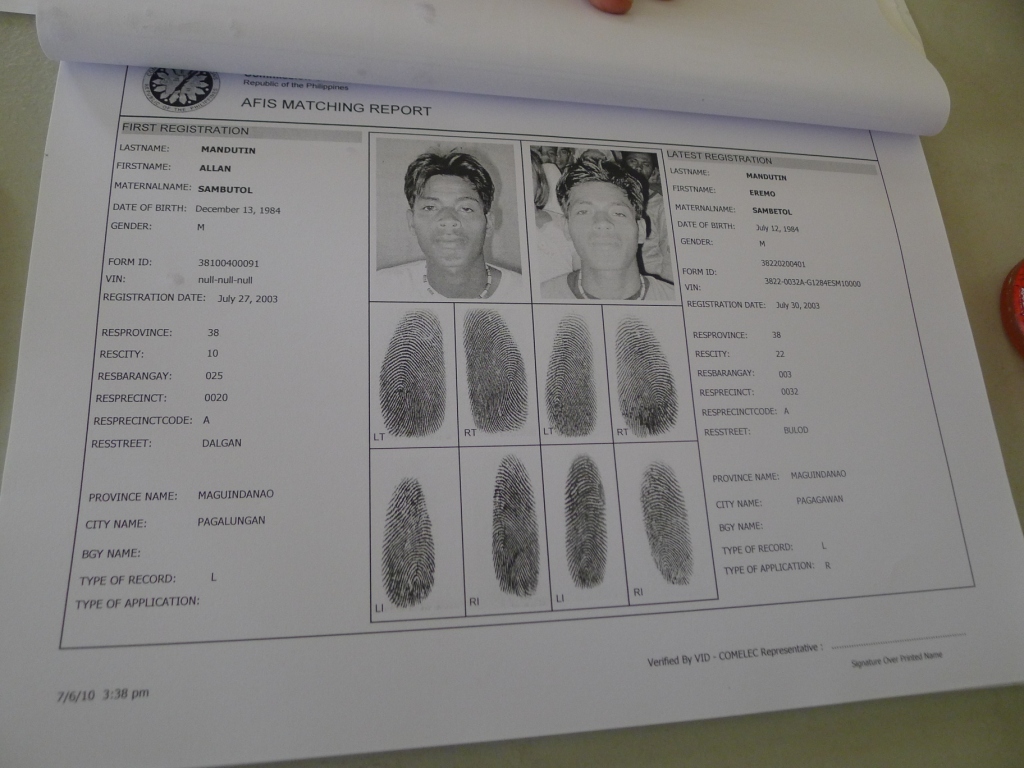
By ARTHA KIRA PAREDES
COTABATO CITY— Voters in some Maguindanao towns could be disenfranchised because they were given only a few days to register, and not the full 10 days set aside by the Commission on Elections.
Lawyer Noel A. Ben, chapter president of the Integrated Bar of the Philippines (IBP)-Cotabato City and adviser of the Legal Network for Truthful Elections (LENTE), his group noted the practice of registration by area of scheduling in at least five towns in Maguindanao.
There is no provision in Comelec Resolution 9475 or the Rules and Regulations in the Conduct of General Registration in the Autonomous Region in Muslim Mindanao (ARMM) allowing registration by area of scheduling, Ben said during the last Task Force Rehistro meeting presided by Executive Secretary Anwar Malang at the Office of the Regional Governor.
Ben said under Resolution 9474, the 10-day registration at the Autonomous Region in Muslim Mindanao (ARMM) from July 9 to 18 is a “closed period.”
There could be disenfranchisement if the residents in a certain barangay are not available on the limited dates set for them, he said.
IBP Cotabato’s territorial service extends to Maguindanao. Lente is an election watchdog group comprised of lawyers, law students, paralegal and trained volunteers.
In VERA Files’ recent visit to the town of Upi, the posted schedule of registration showed that some barangays were scheduled for four days and some six days. Only a few barangays that include Nuro, the poblacion or center, had a 10-day registration schedule. (See photo of schedule of registrations).

Section 5 of Comelec Resolution 9475 specifically states that July 9 to 18, inclusive of Saturday and Sunday is for application for registration or transfer for non ARMM voters.
Under the same section, the last day of post notice hearing is July 31, the last day to file opposition to application for registration August 6 and the hearing and approval or disapproval of application for registration from August 13 to 17.
The resolution expressly gave qualified ARMM residents a 10-day period, he said, adding that even if the scheduling is a mechanism for the purpose of smooth flow of registrations, it is not in the said resolution.
In such case, a resident of voting age who could not register could complain abuse of authority on the part of the local Comelec officials because they are “exercising an act outside of their ministerial duty to accept registration provided that the requirements are actually complied with,” he said.

One of the issues raised during the meeting is who will do the deleting of th files of those who have registered more than once.
The Automated Fingerprint Identification System (AFIS) is supposed to solve issues of hakot and multiple registrations rampant in the ARMM provinces by cross-checking the identities of registrants with the nationwide record of voters.
In Comelec Resolution 8882 promulgated May 7, 2010, it was established that identical records were found in all five ARMM provinces. Non-ARMM province that had multiple records were Isabela City, Pampanga, Rizal and Batangas.
Under the resolution, the “latest registration shall prevail” in the case of those who have registered on two or more districts, cities and towns. Registrants are only allowed to vote in the last area of registration.
It also said that Election officers are directed to “manually cross out from the Election Day Computerized Voters Lists (EDCVLs), Posted Computerized Voters List (PCVLs) and the Supplemental Lists of Voters, if any, the names of voters whose registrations records have been abated.”
Provincial Coordinator of Maguindanao’s Citizens Coalition for ARMM Electoral Reforms, Inc (C-CARE) Bobby Taguntong sees a problem with this saying, the national office should just cleanse records of those who engaged in multiple registrations.
He said that in the past, local politicians had threatened election officers saying, “Kung i-delete mo yan, delete ka na rin sa mundo (if you delete that, you will also be deleted from existence).
(ARMM WATCH is a project of VERA Files in partnership with MindaNews, The Asia Foundation and Australian Agency for International Development.)